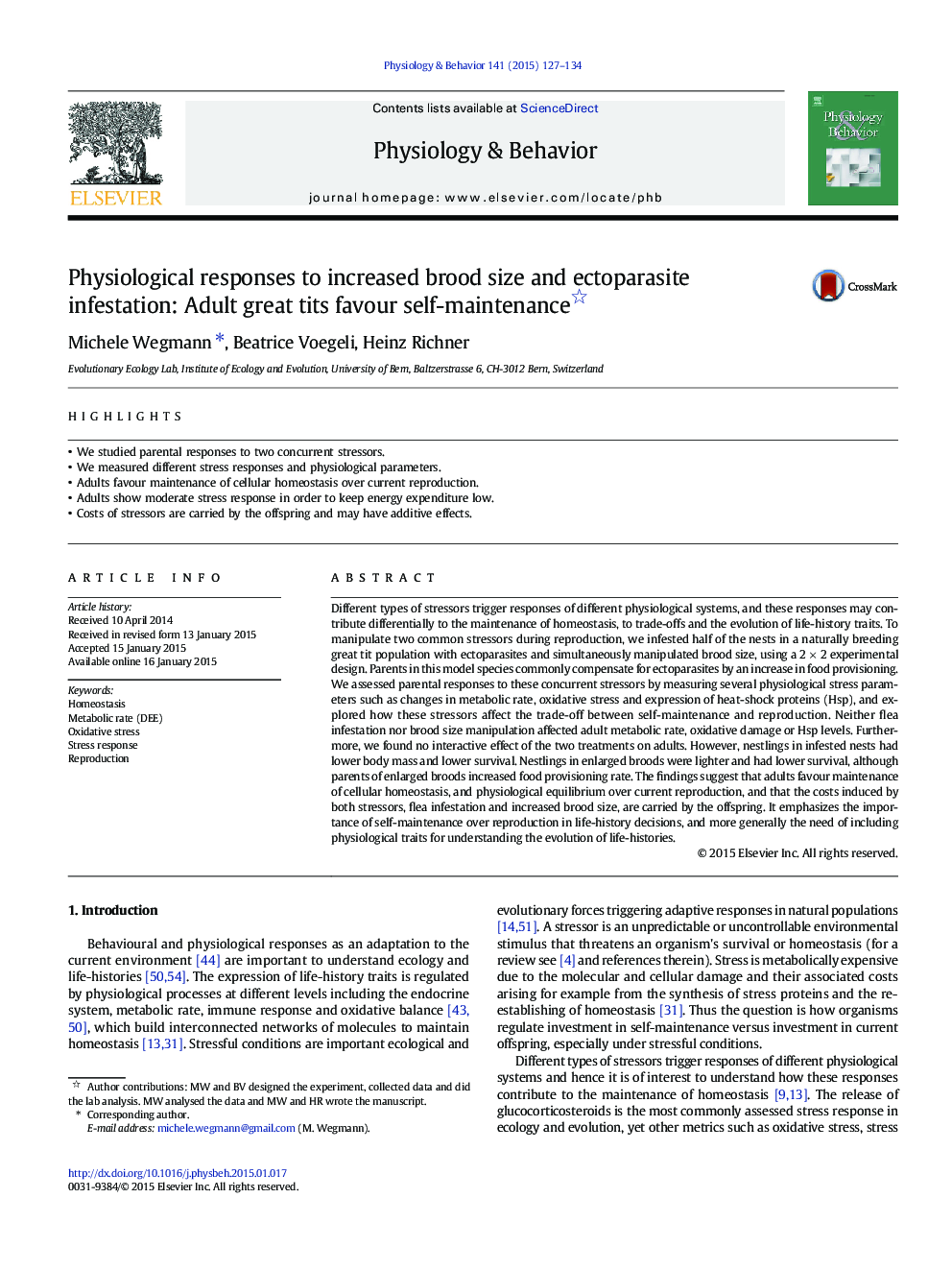| کد مقاله | کد نشریه | سال انتشار | مقاله انگلیسی | نسخه تمام متن |
|---|---|---|---|---|
| 5923773 | 1571176 | 2015 | 8 صفحه PDF | دانلود رایگان |
- We studied parental responses to two concurrent stressors.
- We measured different stress responses and physiological parameters.
- Adults favour maintenance of cellular homeostasis over current reproduction.
- Adults show moderate stress response in order to keep energy expenditure low.
- Costs of stressors are carried by the offspring and may have additive effects.
Different types of stressors trigger responses of different physiological systems, and these responses may contribute differentially to the maintenance of homeostasis, to trade-offs and the evolution of life-history traits. To manipulate two common stressors during reproduction, we infested half of the nests in a naturally breeding great tit population with ectoparasites and simultaneously manipulated brood size, using a 2Â ÃÂ 2 experimental design. Parents in this model species commonly compensate for ectoparasites by an increase in food provisioning. We assessed parental responses to these concurrent stressors by measuring several physiological stress parameters such as changes in metabolic rate, oxidative stress and expression of heat-shock proteins (Hsp), and explored how these stressors affect the trade-off between self-maintenance and reproduction. Neither flea infestation nor brood size manipulation affected adult metabolic rate, oxidative damage or Hsp levels. Furthermore, we found no interactive effect of the two treatments on adults. However, nestlings in infested nests had lower body mass and lower survival. Nestlings in enlarged broods were lighter and had lower survival, although parents of enlarged broods increased food provisioning rate. The findings suggest that adults favour maintenance of cellular homeostasis, and physiological equilibrium over current reproduction, and that the costs induced by both stressors, flea infestation and increased brood size, are carried by the offspring. It emphasizes the importance of self-maintenance over reproduction in life-history decisions, and more generally the need of including physiological traits for understanding the evolution of life-histories.
Journal: Physiology & Behavior - Volume 141, 15 March 2015, Pages 127-134
